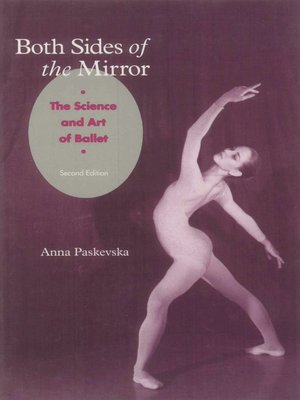
Sign up to save your library
With an OverDrive account, you can save your favorite libraries for at-a-glance information about availability. Find out more about OverDrive accounts.
Find this title in Libby, the library reading app by OverDrive.



Search for a digital library with this title
Title found at these libraries:
| Library Name | Distance |
|---|---|
| Loading... |
Both Sides of the Mirror starts with the premise that skeletal equilibrium promotes harmonious musculature, which in turn makes harmonious movement possible. Early training establishes neuromuscular patterns that form the foundation of later technique. If the training is sound, the young student may become a graceful dancer who is challenged to extend technical skills further and further.
This second edition, published in 1992, incorporates kinesiology, biomechanics and physiology into the theories of ballet. Paskevska places the technical explanations within the spirit of the art form. The book contains material on the progression of training, which it uses to illustrate the possibilities and limitations of the body while cultivating balanced self-awareness for dance students and performing artists.
Chapters include: Introduction: A Personal Statement; Physical Requirements; Posture and Placement; Progression of Training; Sequence of a Ballet Class; Barre Work; Positions; Port de Bras and Arabesques; Weight Transference and Jumps; Principles of Turning; Pointe Work; Style; Classical and Modern Dance. Includes 47 illustrations.
This second edition, published in 1992, incorporates kinesiology, biomechanics and physiology into the theories of ballet. Paskevska places the technical explanations within the spirit of the art form. The book contains material on the progression of training, which it uses to illustrate the possibilities and limitations of the body while cultivating balanced self-awareness for dance students and performing artists.
Chapters include: Introduction: A Personal Statement; Physical Requirements; Posture and Placement; Progression of Training; Sequence of a Ballet Class; Barre Work; Positions; Port de Bras and Arabesques; Weight Transference and Jumps; Principles of Turning; Pointe Work; Style; Classical and Modern Dance. Includes 47 illustrations.







